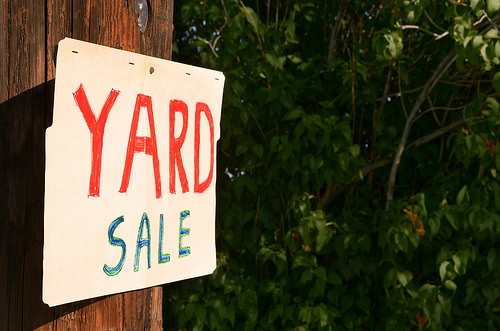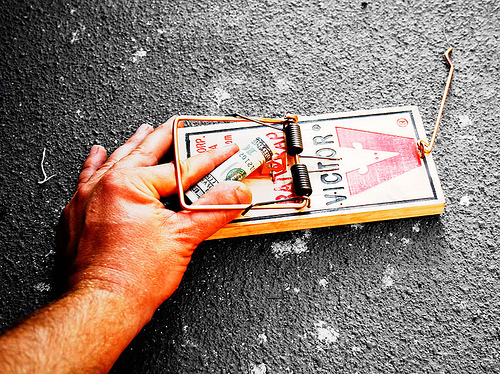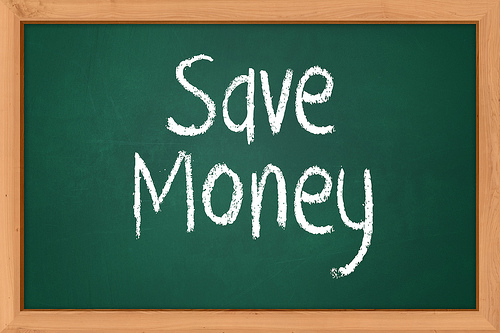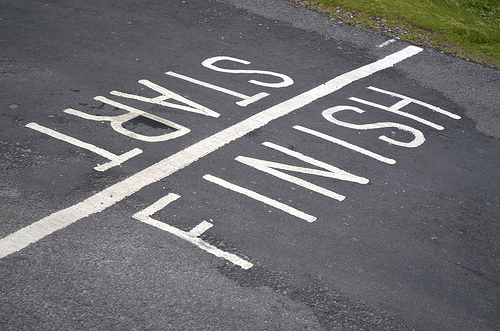I make a real effort to stick to my budget pretty strictly every month, but I must say, I’ve been absolutely BY THE BOOKS these past few months! I’ve added in even more allocations to help me better direct my spending, and I’ve cut back on unnecessary expenses. By doing this, I was able to completely pay off my small outstanding credit card bill AND put extra money into savings!
Education
Get Cash for Cleaning Out Your Closet
We’ve been in our new house for about 3 months now, and we’ve finally settled into a place that feels like ours. While we can appreciate all of the extra storage we now have available (and believe me, we have DEFINITELY taken advantage of that), all of the “stuff” we’ve acquired has become painfully obvious to me.
Fitting Fun Into Your Budget
Just because you’re on a budget doesn’t mean that you can’t have any fun!
Budgeting For The Beach: Can You Afford A Vacation?
Budgeting is the perfect way to keep track of where your money goes every month, but it’s also a great tool for planning and saving! Not only can you monitor mandatory monthly expenses, but your budget will allow you to easily see how much is left over for the fun stuff.
Could You Be Blowing Your Budget?
Even the best-laid plans can run off-course from time to time.
Being Frugal Isn’t A Bad Thing: 10 Ways to Save More
Some people associate being frugal with being “cheap” – penny-pinchers that miss out on everything else because they’re not willing to spend an extra buck. That’s not true at all!
The 30-Day Spending Hiatus
Ready for a new challenge? Check out the 30-Day Spending Hiatus to buff up your budget and get your money back on track!
Life Lessons: Learning About Money
After graduating from both high school and college, I looked back at how much I had learned, but also at how much I hadn’t. Sure, I was well-versed in my field, but I was lacking some necessary life skills. No one ever taught me about saving money and paying bills, filing taxes and buying a house. No one prepared me, financially, for the future, and no one ever taught me how to do that on my own. I was lucky enough to do my own research, and I learned through trial-and-error, but not everyone is so lucky. How can we help others avoid a potentially rocky road ahead? Let’s talk more about the importance of learning about money, spending, and saving.
Where and how do we learn about money? Most people learn about money from experience, whether it be personal or a reflection of how you were raised (i.e. how your parents handled finances). Many seek out financial advisors and consultants, or search for advice online. How do we know what tips are beneficial, and which ones could be potentially harmful? How do we set ourselves up for future financial success? Opening up a discussion with someone you trust is a great start.
How do we think about money? Money can often have a number of negative emotions attached to it, and it can, at times, be a very overwhelming subject. Changing your attitude about your finances can help you to be more proactive. Instead of feeling as though money controls your life, turn the tables and take control of it yourself. Have confidence that you can manage it wisely.
How do we talk about money? Talking about money can sometimes be difficult, whether it’s with a spouse, a relative, or a friend. Learning to talk about it regularly can help to ease any tensions that may arise from these discussions. Having discussions before problems pop up is a lot less frustrating than having them when you’re already in a tricky situation, especially if others are involved.
How do we keep track of our money? Learning to budget properly is a game-changer! Prioritizing and monitoring your spending will keep you in control of your money. The key to success is living comfortably within your means. When you see exactly where your money goes every month, you can make changes to make sure your needs are met, as well as some of your “wants.” Consistent monitoring allows you to make sure you’re staying on track, and any “wiggle room” you might have is a lot more visible, should something unexpected arise.
How do we save money? Thinking about the future is important, but sometimes forgotten about. A good way to remember to save is to set goals for yourself, instead of saving just to save. In addition to a general emergency fund, map out a few things that might be important to you later down the road – buying a house, going on a vacation, or maybe getting your car inspected. While all of those things might not be that exciting, you’ll still need to pay for things like car maintenance, so setting aside money now will feel a lot less draining on your wallet later. Paying close attention to your budget will also help you to determine how much you can save and how quickly.
How did you learn to manage your finances? Is there anything you wish you would have known earlier on? How did you grow from those experiences?
Savings Challenge Check-In: The Final Report
If you’ve been following along, you might remember that I started a year-long Savings Challenge last March (you can catch up here, here, and here). The end is in sight, and I wanted to share one final update with you!










